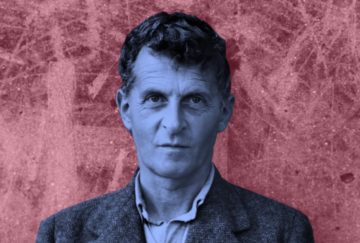Kieran Setiya in the Boston Review:
 The month is May 1916. In southern Galicia, now Ukraine, on the Eastern Front of World War I, a twenty-seven-year-old Austrian volunteers for duty in an observation post exposed to enemy gunfire. He keeps a notebook of his hopes and fears, written in a simple cipher from his childhood—the letter “z” stands for “a,” “y” for “b,” and so on—with philosophical remarks, uncoded, on the facing pages. The latter concern the nature of logic and are peppered with logical symbols. From April 15: “Every simple proposition can be brought into the form ɸx.”
The month is May 1916. In southern Galicia, now Ukraine, on the Eastern Front of World War I, a twenty-seven-year-old Austrian volunteers for duty in an observation post exposed to enemy gunfire. He keeps a notebook of his hopes and fears, written in a simple cipher from his childhood—the letter “z” stands for “a,” “y” for “b,” and so on—with philosophical remarks, uncoded, on the facing pages. The latter concern the nature of logic and are peppered with logical symbols. From April 15: “Every simple proposition can be brought into the form ɸx.”
In June Russia launches the “Brusilov Offensive,” one of the most lethal military campaigns of the war. The young man’s notebook goes empty for a month. Then, on July 4, he begins to write, in the uncoded pages, remarks that are not logical, but spiritual. “What do I know about God and the purpose of life?” he asks. “That something about it is problematic, which we call its meaning. That this meaning does not lie in it but outside it. . . . I cannot bend the happenings of the world to my will; I am completely powerless.”
From this point on, distinctions blur. The cipher seeks connections; the philosophy leaps from logic to life’s meaning and back. “Yes,” he writes on August 2, “my work has broadened out from the foundations of logic to the nature of the world.” In the end, there is no code. Nothing is hidden—though “What cannot be said, cannot be said!”
More here.
